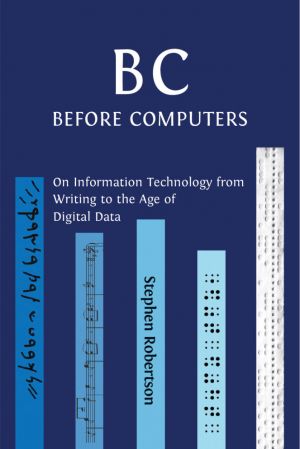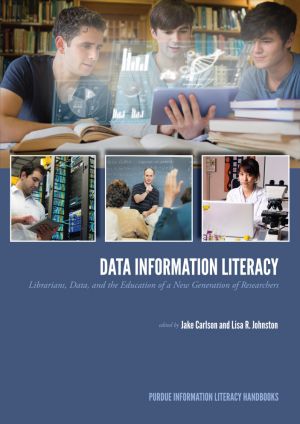Information technology project managers' competencies
An analysis of performance and personal competencies
by Carl Marnewick, Wikus Erasmus, Nazeer Joseph
DescriptionTable of ContentsDetailsHashtagsReport an issue
This novel research seeks to extend the debate on project success beyond what constitutes success or failure, but seeks to find clarity in what IT project managers believe are the essential competencies in practice. This quantitative research gathered data by way of an online survey based on literature regarding the Project Management Competency Development Framework (PMCDF). The population consisted of IT project managers in South Africa. Four hundred and two respondents chose to share their insights. Through the use of descriptive and multivariate statistics, major competency factors were identified. These factors were used in structural equation modelling to build various validated predictive models.
This book contributes to the current body of knowledge by uncovering the competencies that IT project managers consider themselves competent in. The structural equation models indicated predictors of perceived competence by IT project managers and where these perceived competencies differ from literature. Twelve managerial implications are highlighted in the final chapter that seek to draw the myriad threads together into a coherent summary. It is apparent that IT project managers do not consider the PMCDF important in its entirety, but instead choose to focus on certain competencies. 






Book Description
The purpose of this book is to shed light on the performance and personal competencies of information technology (IT) project managers in South Africa. Predictive models are built to determine what project managers consider the crucial competencies they should possess to deliver an IT project successfully. This investigation takes place in the context of poor IT project success rates globally and, in particular, in South Africa.This novel research seeks to extend the debate on project success beyond what constitutes success or failure, but seeks to find clarity in what IT project managers believe are the essential competencies in practice. This quantitative research gathered data by way of an online survey based on literature regarding the Project Management Competency Development Framework (PMCDF). The population consisted of IT project managers in South Africa. Four hundred and two respondents chose to share their insights. Through the use of descriptive and multivariate statistics, major competency factors were identified. These factors were used in structural equation modelling to build various validated predictive models.
This book contributes to the current body of knowledge by uncovering the competencies that IT project managers consider themselves competent in. The structural equation models indicated predictors of perceived competence by IT project managers and where these perceived competencies differ from literature. Twelve managerial implications are highlighted in the final chapter that seek to draw the myriad threads together into a coherent summary. It is apparent that IT project managers do not consider the PMCDF important in its entirety, but instead choose to focus on certain competencies.
This open book is licensed under a Creative Commons License (CC BY-NC-SA). You can download Information technology project managers' competencies ebook for free in PDF format (17.8 MB).
Table of Contents
Chapter 1
Introduction to project management competencies
Chapter 2
Industry overview of project manager competencies
Chapter 3
Project management certifications' influence on project success
Chapter 4
Information technology project managers' performance competencies
Chapter 5
Information technology project managers' personal competence
Chapter 6
Factors and models for competence units
Chapter 7
Managerial implications and suggestions
Book Details
Title
Information technology project managers' competencies
Subject
Computer Science
Publisher
AOSIS
Published
2016
Pages
269
Edition
1
Language
English
ISBN13
9781928396062
ISBN10
1928396062
ISBN13 Digital
9781928396055
ISBN10 Digital
1928396054
PDF Size
17.8 MB
License

Related Books

This book presents nine outstanding doctoral dissertations in Information Technology from the Department of Electronics, Information and Bioengineering, Politecnico di Milano, Italy. Information Technology has always been highly interdisciplinary, as many aspects have to be considered in IT systems. The doctoral studies program in IT at Politecnico...

The idea that the digital age has revolutionized our day-to-day experience of the world is nothing new, and has been amply recognized by cultural historians. In contrast, Stephen Robertson's BC: Before Computers is a work which questions the idea that the mid-twentieth century saw a single moment of rupture. It is about all the things that we ...

Given the increasing attention to managing, publishing, and preserving research datasets as scholarly assets, what competencies in working with research data will graduate students in STEM disciplines need to be successful in their fields? And what role can librarians play in helping students attain these competencies? In addressing these questions...

This book is about public open spaces, about people, and about the relationship between them and the role of technology in this relationship. It is about different approaches, methods, empirical studies, and concerns about a phenomenon that is increasingly being in the centre of sciences and strategies – the penetration of digital technologies in...

What does it take for success in the media business? Creativity, innovation, and performance, of course. Plus experience and good judgment. However, it also requires an understanding of the principles and tools of management. This book summarizes the major dimensions of a business school curriculum and applies them to the entire media, media-tech, ...

The world has become more complicated with the introduction and development of new technologies and methods, and novel risks such as Covid-19 pandemic. Competition has been tougher than it used to be. Organizations strive to keep up with the changes in the internal and external environment. In the light of unprecedented changes, project managers mu...

